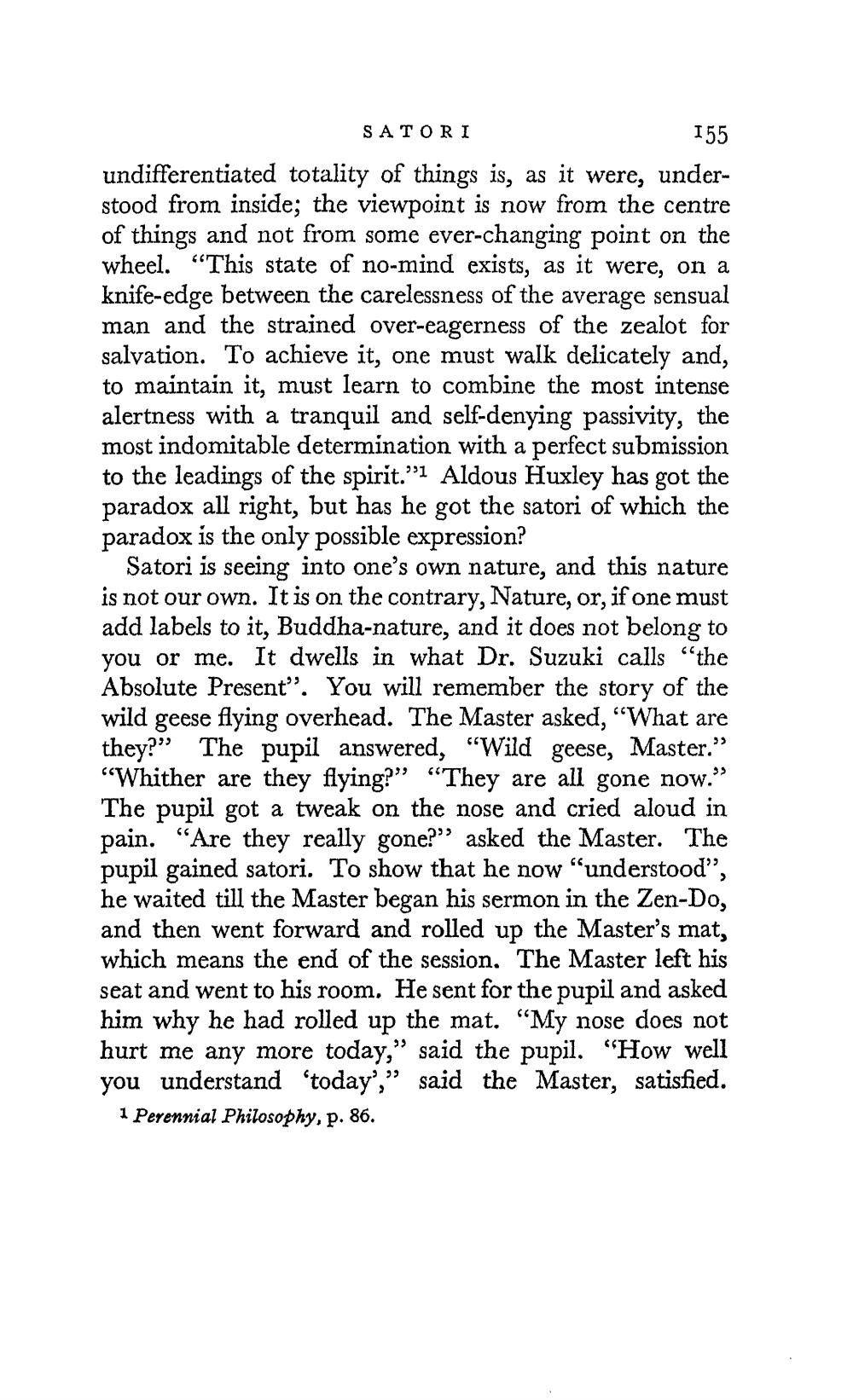________________
SATORI
155 undifferentiated totality of things is, as it were, understood from inside; the viewpoint is now from the centre of things and not from some ever-changing point on the wheel. “This state of no-mind exists, as it were, on a knife-edge between the carelessness of the average sensual man and the strained over-eagerness of the zealot for salvation. To achieve it, one must walk delicately and, to maintain it, must learn to combine the most intense alertness with a tranquil and self-denying passivity, the most indomitable determination with a perfect submission to the leadings of the spirit."1 Aldous Huxley has got the paradox all right, but has he got the satori of which the paradox is the only possible expression?
Satori is seeing into one's own nature, and this nature is not our own. It is on the contrary, Nature, or, if one must add labels to it, Buddha-nature, and it does not belong to you or me. It dwells in what Dr. Suzuki calls “the Absolute Present". You will remember the story of the wild geese flying overhead. The Master asked, “What are they?” The pupil answered, “Wild geese, Master." “Whither are they flying?” “They are all gone now." The pupil got a tweak on the nose and cried aloud in pain. "Are they really gone?" asked the Master. The pupil gained satori. To show that he now "understood”, he waited till the Master began his sermon in the Zen-Do, and then went forward and rolled up the Master's mat, which means the end of the session. The Master left his seat and went to his room. He sent for the pupil and asked him why he had rolled up the mat. “My nose does not hurt me any more today," said the pupil. "How well you understand today'," said the Master, satisfied.
1 Perennial Philosophy, p. 86.




